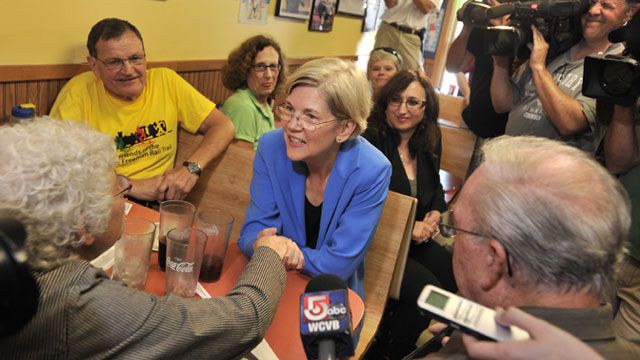This much is clear: as we approach the second anniversary of the Supreme Court’s Citizens United ruling, we’ve still got a lot of work to do just getting people to know what the decision was all about. A new poll from the Pew Research Center for People and the Press finds that only 54 percent of registered voters they surveyed had heard of Citizens United and knew that it allows raising and spending unlimited independent money on political ads.
The good news is that of those in the know, fully 65 percent say the new campaign finance rules “are having a negative effect on the 2012 presidential campaign. And among those who have heard a lot about these new campaign finance rules, 78 percent say the effect has been negative.”
Nonetheless, all that cash is working, according to an analysis by the Associated Press: “The millions of dollars’ worth of political advertisements airing before the early primary elections are turning out to be money well spent: The ads have affected primary results more than other forms of campaigning, including personal appearances by candidates, campaign speeches or town hall meetings… The AP’s study of advertising purchases, campaign stops and demographic data offers the first tangible signs of how new super political action committees… are poised to remake presidential politics this year.”

On a brighter note, rival U.S. Senate candidates Elizabeth Warren and incumbent Scott Brown in Massachusetts have called for a “cease-fire” on third party super PAC spending in their race. Senior officials from both campaigns will soon meet to come up with a plan. But as Politico.com reports, don’t count on it. “Whether the talk amounts to anything more than public posturing to distance themselves from the millions of dollars in negative attacks launched by the groups remains to be seen. Experts are skeptical that groups will unilaterally disarm knowing that this race could tip the balance of power in the Senate.”

